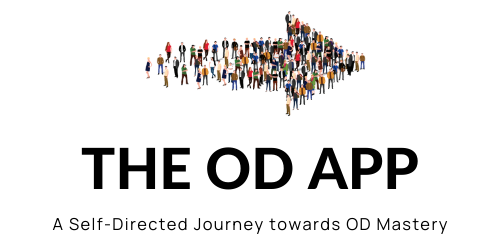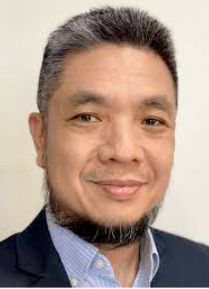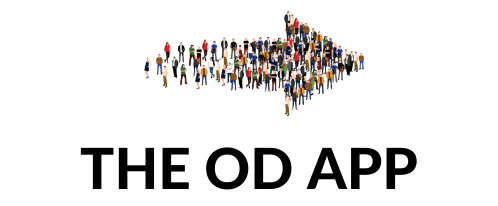Part I: My journey into Facilitation
I was into the fifth or sixth year of my team-development practice, which was built on a foundation of psychometrics. Visits back to client organizations and contact with past participants regularly mentioned that the workshops created good awareness, but old habits die hard and soon the prevailing issues became apparent again. Apparently the only change that lasted longer was that there was now a language of difference that participants chose to focus on versus the language of synergy that this awareness of difference could offer.
It was about this time that I began reading about large group methods like the World Cafe, the Appreciative Inquiry Summit (Al Summit) and Open Space Technology. I was so struck by the simplicity and power of conversation from these forebears, such as Juanita Brown, David Cooperrider, Harrison Owen … so I began to go deeper in my research. This research brought me to the following thematic areas:
- Dialogue: the writings of people like Bohm and Isaacs
- Facilitation: the work of organizations, such as the Institute of Cultural Affairs (ICA) and the International Association of Facilitators (IAF)
In 2009, without any prior attendance at facilitation skills workshops, I signed up and paid to be a candidate in the IAF certification process. I cleared the Certified Professional Facilitator process on my first try, gained mentors, and at the IAF Asia Conference, which took place right after the certification event, I thought that I had found my tribe.
Fast-forward to 2021, I have successfully re-certified three times and now hold the credential of Certified Professional Facilitator (Master), having also contributed to the field of facilitation and the Association in various ways, not least as Board Chair (2016–2017).
Part II: A description of the Facilitation specialism
A definition of the verb facilitate comes from the Latin facilis, which means ‘easy’ or ‘to make easy’, In a very real way, the power of facilitation is made manifest in the presence of a competent facilitator who holds the meeting/workshop procedure and creates an inclusive space for the group to do its best work together.
The facilitator is, at the same time, neutral to the content of the group and also to the outcomes desired by the group from the process. It is this process mastery which, on paper, creates the climate in the group in which decisions were made more easily, efficiently and effectively, without conflicts of interest being a major source of disruption, and therefore outcomes are more readily accepted by the group.
Based primarily on my research, I am not aware of an ‘official’ history of facilitation. This state of affairs is probably a fair reflection of the field in the sense that it is a field that is populated with many contributors, each with their own take or angle on facilitation. From my reading and conversations with mentors and colleagues, I have arrived at the following themes:
- Where there is a need for collective thinking, there is a place for facilitation
- One might see the lineage of the current practice of turn-taking in order to hear every voice; for instance, originating from native groups’ own practices and the use of tools such as talking sticks.
- Facilitation is rooted in activism, subverting current context as it paves the way for collective action for social and political change
- Consider the various movements over Western history in the late 19th century to the current time (from feminism, to anti-war movements, to the Occupy movements of the last decade).
- While not strictly facilitators, the work of Augusto Boal (Theatre of the Oppressed) and Paolo Freire (Pedagogy of the Oppressed) provided the basis for their audiences to mobilize against the military dictatorship of their age.
- There are also other traditions that have contributed to the body of knowledge for the field, such as the following
- Counselling, e.g., holding the client system with unconditional positive regard (Carl Rogers)
- Gestalt OD, where facilitation is about making good contact with different parts of the client system and moving the client through the Gestalt Cycle of Experience
- Strengths-based approaches, such as Appreciative Inquiry and leaning more to the psychotherapy end of the spectrum, e.g., Narrative Practices where the facilitator uses certain question frameworks over others to illuminate less obvious parts of the client system to the awareness of the system itself
- From the world of software development and manufacturing, the emerging body of work relating to Agile and Lean methodologies
- The proportion of online and print resources on facilitation relate heavily to methods and tools
- Professionalization of the field has led to the formation of bodies such as the IAF, which have then introduced competency frameworks and certification processes to help with facilitator credentialling. (Of course, there is an ongoing debate about whether one needs credentials to be a good facilitator. Alternately, another view of the debate is whether a good facilitator should even need credentialling.)
Part III: What competences does a practitioner need to practise this specialism?
The obvious place to start relating to this question is with aforementioned bodies such as the IAF. The IAF has been around for close to 30 years now and their take is found here. The IAF Core Competencies shed some useful light in terms of the dimensions of how a facilitator could view their growth path:
- Competence A: Create Collaborative Client Relationships
- Competence B: Plan Appropriate Group Processes
- Competence C: Create and Sustain a Participatory Environment
- Competence D: Guide Group to Appropriate and Useful Outcomes
- Competence E: Build and Maintain Professional Knowledge
- Competence F: Model Positive Professional Attitude
These dimensions can also be viewed from an interaction perspective
- Competence A: Contracting with the client before session
- Competences B to D: Design and Delivery
- Competences E to F: Ongoing Development
In this next section are some of my own thoughts about this question of competence, from reflecting on my own practice and the practices of others whom I have had the privilege of working with and learning from
A. Technical/Foundational Skills to get started
| Skill | The Essence | Impact on client |
| Active Listening | Listening beyond textual information. In the literature, this is described as global listening or Level 3 listening. | Client and participants feel that their situation is understood. |
| Verbal Skills – Probing Asking questions to surface tacit assumptions behind statements made Paraphrasing Restating what was said using one’s own words but retaining the meaning of what was expressed. Summarizing Bottom-lining an exchange by offering a succinct expression of its content | Operationalizing one’s curiosity and ability to work with the group in its own push-pull dynamic of data exchange, as well as with the facilitator. | Modelling of a dialogue process for clients/participants. The slowing down of what normally happens in day-to-day organizational life can create awareness of existing patterns in the group. This can catalyze better understanding of the issues because when participants offer perspectives to the facilitator, they are also speaking to the group. |
| Scribing | Capturing the meaning expressed, if not the words of the participants, verbatim. | The client’s trust in the facilitator grows when words/meaning is accurately captured/documented. |
| Contracting | Creating agreement with the client on specifics relating to the nature of the request, data collection on the part of the facilitator, the desired outcomes of the work, work to be done by when, with whom, as well as gaining permission to access other parts of the client system. | The clear basis of collaboration with the client is created. |
| Process Design | Putting together an inclusive process that helps the group to ideate widely and for them to converge on priorities for next steps. | Client feels helped and participants feel that they have a stake in the outcome of the meeting. |
| Selecting and using appropriate process tools for the intended outcome | The facilitator appreciates the tools’ underlying ethos and uses them appropriately to reach outcomes. Where necessary, process tools are modified to clients’ contexts with care. | The meeting flow will not feel disjointed and will be experienced as a flow of ideas and interaction. |
Of these, I would say I would consider contracting and process design as the skills that would set apart the adults from the children, in a manner of speaking, here.
I think of contracting as creating the necessary agreements upon which the facilitator will act. Honing this will give the facilitator the clarity of the relationship and the task, if taken on. I also see skillful contracting as client education, especially if the client has never worked with a facilitator before or has not had a good experience working with one. This is a great opportunity to create shifts in the client system.
I feel I was very fortunate to start my professional life as a teacher and that the discipline of lesson planning and establishing the connection between lessons, as well as facilitating these lessons over a six-year period, gave me a good grounding as far as process design is concerned. Also, I joined the Singapore Education Service at a time when there was a move from didactic teacher-driven learning to student-centered cooperative learning strategies. So, being able to see the objectives of a session and designing a process that would arrive at certain cognitive and behavioural outcomes came fairly easily when I made the shift to becoming a facilitator.
The other skills are still important microskills and are part and parcel of what a person working with people and human dynamics should have as a foundation.
B. Advanced capacities
In this section, I take the view that the sum of the following capacities is greater than its individual parts and that using them in concert is more effective than merely exercising one or two of them. Because of this view, I see them as all critically important and I lean towards the first four as fairly definitive of an advanced practitioner.
| Capacity | The Essence | Impact on client |
| Self-awareness in the larger context of using self as an instrument | Developing acuity to sense what is going on in one’s inner world as the facilitator interacts in and out of session with the client system. This is so that we are centered and being of service to the group, regardless of whether we are center stage or not. | When successfully honed and applied, the client will experience the collaboration of an agent of change in tune with the needs of the whole system, fully conscious of where their needs are in relation to the system’s. |
| Designing in the moment | The facilitator is ‘tight’ on what is needed by the group, guided by emerging data and contracted outcomes. They are ‘loose’ (not dogmatic) on processes and tools and therefore they are able to blend methods and approaches that have the effect of creating a greater experience of inclusion and participation. | The client feels that they are supported by a facilitator who is working closely with the client system, prepared to shift the meeting design, triangulating with emergent data, the agreed outcomes and the evolving contract with the sponsor. |
| Contracting to build collaboration | The facilitator models collaboration with all parts of the client system, always contracting on available evidence and emergent data to get agreement on collaborative ways of working before proceeding. | The client feels that the facilitator is not driving their own agenda but rather living out the ‘always be contracting’ principle to deepen their licence to act. This is ongoing while broadening the internal coalition for change through the act of contracting. |
| Reflecting | Providing the group with objective feedback about the felt impact, something in the group’s interaction with each other has had on the facilitator—sharing even a feeling or a sensation—without needing to know what it means to the facilitator. | Stemming from self-awareness, this is one way in which the facilitator can articulate what the group may have felt but did not share. Such a reflection can offer new data about how the group is functioning and can catalyze movement out of stuck situations alongside other interventions. |
| Non-judgemental curiosity about the client system | The facilitator is open to how the group is showing up and to the patterns they bring to the conversation, e.g., they take the stance of offering help without ego, without basing it on judgement of right and wrong regarding the client situation. | The facilitator brings a layer of authenticity to the help they are rendering, without judgement. |
| Staying neutral to the group’s outcomes but remaining steadfastly pro group | The facilitator holds little to no relevant content expertise with regards to the client situation, using process tools and their belief in the group’s capacity to reach their outcomes, and helping to cultivate an ever-growing sense of teamship in the client system. | The client benefits from the outside-looking-in perspective that the facilitator brings as well as the focus on what the group can achieve together by building its capacity to dialogue with each other. The facilitator’s stance of not bringing their own content expertise, here, also reduces dependency of the client group on the facilitator. |
Part IV: What is the developmental journey for the facilitation specialism?
There are several facets to this developmental question. These include:
- Formal learning and credentialing
- There are a myriad of facilitator skills training workshops available online and in person
- The IAF has a tiered credential structure with an increasing level of rigour. More details here.
- Informal/Self-directed learning:
- Developing a Reflective Practice with practices like journalling
- Mentoring others and being mentored
- Cultivating a centered Self
- I know of different practices that facilitators engage in to do so (e.g., art, meditation, spiritual practices, and fitness)
- I know of different practices that facilitators engage in to do so (e.g., art, meditation, spiritual practices, and fitness)
I believe the answer depends in part on where one positions facilitation in one’s practice. Within my practice of OD, I see facilitation as the primary sub-discipline where I did my work with groups and large systems, compared to, for example, coaching, which is largely more interpersonal and with specific audiences.
And within that primary focus, from the start, I don’t think I would have been satisfied to stay at a technical skill level, i.e., gaining more process tools. (I find Glyn Thomas’ Dimensions of Facilitator Education to be particularly insightful here).
The different strands of thought feeding into my facilitation practice include critical theory and postmodernism, social constructionism, discourse analysis, person-centered approaches from counselling and therapy and, of course, my primary work as an OD practitioner (Gestalt OD, large systems work). These have been rich streams, watering my practice with perspectives and ideas. There are indeed many paths to developing mastery in the field of facilitation.




